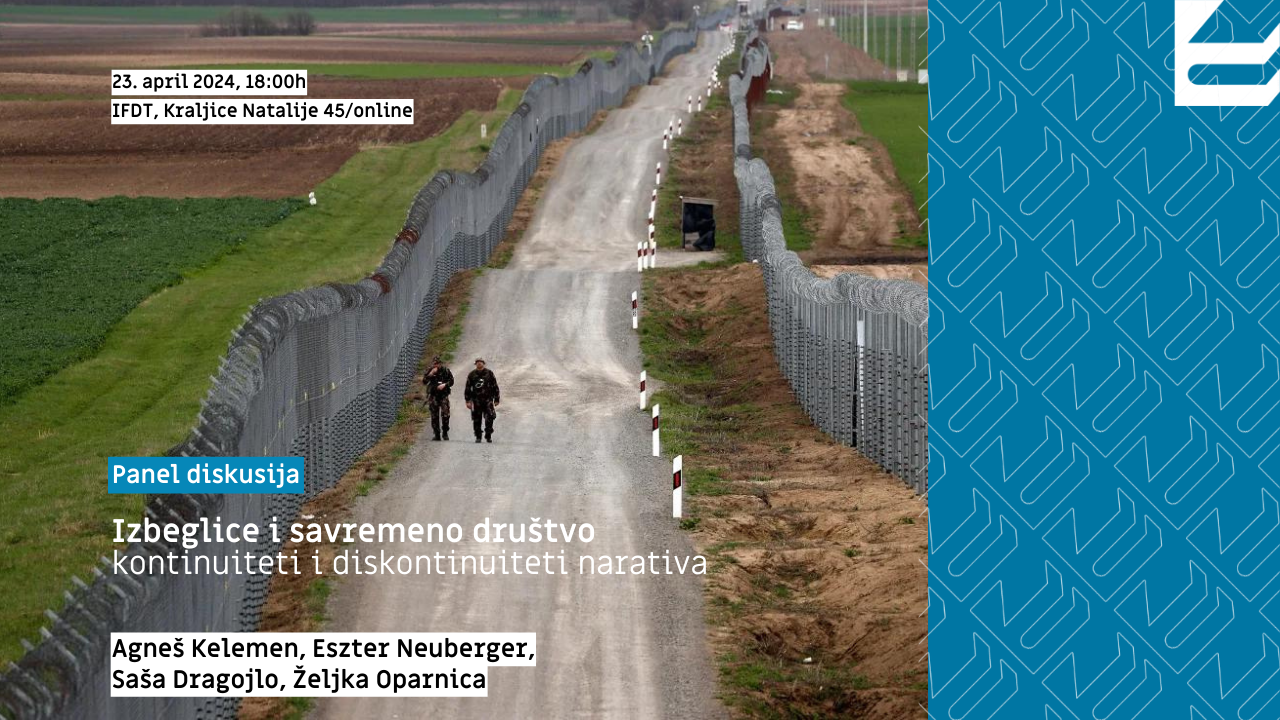
[Panel discussion] Refugees and contemporary societies – continuities and discontinuities of narratives (Shoahlab/Activelab/Yugolab)
Participants: Agnes Kelemen (Central European University–Democracy Institute), Eszter Neuberger (Lakmusz), Saša Dragojlo (BIRN), Željka Oparnica (British School at Rome)
History of the twentieth century could be written solely through refugees’ experiences. From the prosecution of Jewish communities in Eastern Europe at the beginning of the century, through the countless refugees and displaced persons after the two world wars and the wars for Yugoslav succession, to the refugee and migrant question of the last decade. The idea of this panel is to open a discussion about the main, repeating, and new narratives about refugees in Hungarian and Yugoslav and Serbian societies, between past and present, historians and journalists. In light of this, the participants of this panel discussion will offer answers to following questions: How and why were different narratives on refugees used for manipulation in the past and present? Who are our main sources about refugedom? Is the abuse of refugee question for political purposes a continuity in European history? Panel participants will approach these issues from two historical perspectives: the refugee discourse in the twentieth century and the refugees question opened in 2015 with the Balkan route. Agnes Kelemen and Željka Oparnica will present historical perspectives on the discourse on refugees in Hungary and Yugoslav kingdom. Journalists Eszter Neuberger and Saša Dragojlo will offer insight in the ways in which Hungary and Serbia used and abused the refugee question for political purposes. This panel discussion will also open the space for debate of less known aspects of refugedom in European history, but also a wider debate on media and disinformation in past and present.
Agnes Kelemen is a member of UnRef: Unlikely refuge? Refugees and citizens in East-Central Europe in the 20th Century research project team at the Masaryk Institute and Archives of the Czech Academy of Sciences in Prague. She also serves as the coordinator of the Democracy in History workgroup at the CEU-Democracy Institute. Her main research interests are East Central Europe, migration and Jewish history.
Željka Oparnica is a historian, currently Rome Fellow at the British School at Rome. She defended her thesis on Sephardi politics in the Balkans at Birkeck, Univeristy of London in 2022. She works on the history of minorities in the Balkans, Central Europe, and the Eastern Mediterranean.
Eszter Neuberger currently works as a journalist and editor of Lakmusz, a Hungaria. fact-checking and anti-disinformation portal. During her career, she was working with a rather different journalistic genre: reporting on various social issues, ineqhalities, and on the hardships of different marginalized communities in Hungary. She lives and works in Budapest.
Saša Dragojlo was born in Knin in 1990. He is a journalist for BIRN, Balkan Investigative Research Network. He wrote for numerous media in Serbia and region, including Vreme, NIN, KRIK, Novosti: Portal of Serbian minority in Croatia, Istinomer, and others. He is the recipient of the 2023 Dušan Bogavac Award for ethics and bravery. He has been investigating issues of the refigee crisis, smuggling and and exploatation of workers, coruption, and arms trade for years. He lives and works in Belgrade.
